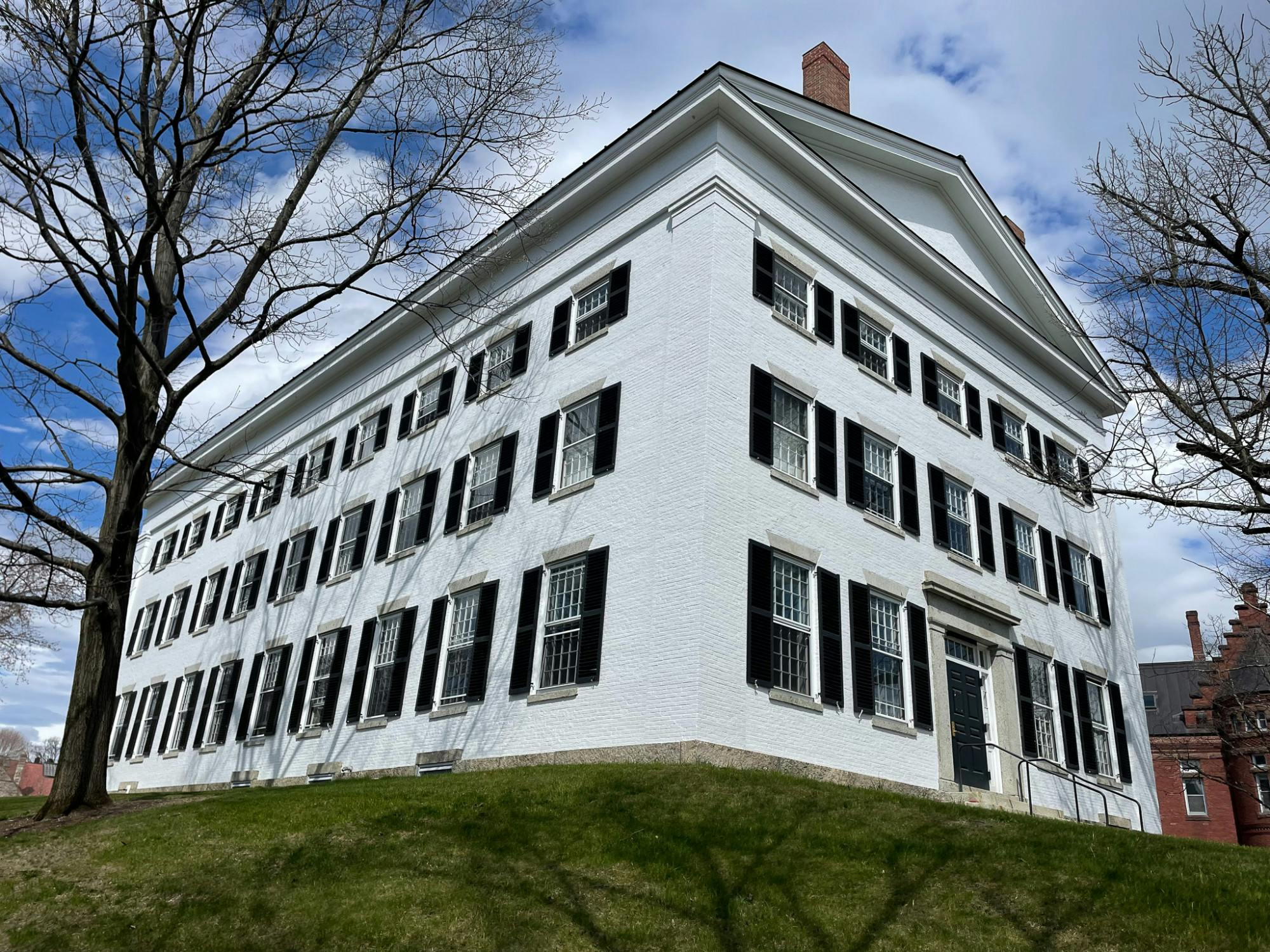On April 7, six Dartmouth students competed in person and online at the New England Olympiada of Spoken Russian at Harvard University, a one-day event for students to demonstrate their Russian-speaking abilities. The competition invites students of various Russian language proficiency levels from colleges across New England to either perform monologues in-person or submit recordings of poem recitations and songs online, according to the organization’s website. All entries were required to fall under this year’s theme, "Мир книг/World of books.”
According to the organization’s website, students from 10 schools participated in three competitions divided by class year: an in-person speech contest, a virtual poetry contest and a virtual song contest. Dartmouth students placed in seven contests, according to the website.
Sophie Cohen ’26, Caroline Klearman ’27 and Aidan Silvestro ’27, who traveled to the in-person speech contest, placed in their respective categories. Cohen placed third in both the second-year speech contest and second-year song contest, Klearman placed second in the first-year speech contest and Silvestro placed second in the heritage students poetry contest — a designation for students of Russian heritage who did not grow up speaking Russian.
Klearman said she decided to participate at the encouragement of Russian professor Alfia Rakova. Throughout the preparation process, Klearman said Rakova helped her fix errors in the speech she had written two weeks before the competition, she said.
Klearman added that the event was “an interesting way” to meet other students studying Russian from different schools.
Other students instead chose to participate in the online poetry and song competitions. Lintaro Donovan ’24, Maria Eduarda Goncalves Freitas ’26 and Alexander Joel ’25 submitted their poem and song recordings online, according to the organization’s website. Donovan placed second in the third-year poetry contest, Freitas won the first-year poetry contest and Joel won the second-year poetry contest.
Joel said he was also encouraged by Rakova to “take an academic risk” and participate in the poetry reading competition.
While preparing his monologue, Joel said he struggled to decipher his chosen poem, “и при слове грядущее (with the word ‘future’)” by Joseph Brodsky.
“It dealt with some very abstract themes about power, censorship [and] collective memory,” he said.
However, after meeting with Rakova and continuing to practice the poem, Joel said he “really found the correct voice for it.”
For her performance, Freitas said she chose “О Чтении (About reading)” by Andrey Usachov because she wanted to understand the meaning and structure of the poem she read. In addition to her struggle of learning Russian for the first time, Freitas said she struggled with her pronunciation for the poem recitation because her first language is Portuguese.
“I tend to pronounce ‘s’ as a ‘z’ sometimes, so I tried to fix it based on Professor Rakova’s advice,” she said.
Freitas added that she used videos of others reciting the same poem to emulate the proper tone, gestures and facial expressions.
Freitas said she usually feels “nervous” to talk in public, but her positive experience at the event has made her excited to participate again if she takes another year of Russian. Freitas added that she had previously participated in Olympiad competitions during high school — an experience she said she missed.
“I definitely missed going into small competitions where you test your knowledge about a thing that you’ve been excited about learning,” Freitas said.
Joel said the competition helped him realize that poetry is “an incredible way” to learn a language because it provides “cultural insights and language practice.”
“[Poetry has] definitely been an important part of my experience learning Russian at Dartmouth,” Joel said. “From the very first classes, we learned how to recite poems from memory, whether that’s the famous Pushkin poem [‘Я вас любил (I Loved You)’] or other poems.”
Klearman said her experience during the competition helped her become more interested in the Russian language.
“[The event] really helped engage me in Russian,” Klearman said. “I liked the subject already, but [the event] made me more interested in it.”




